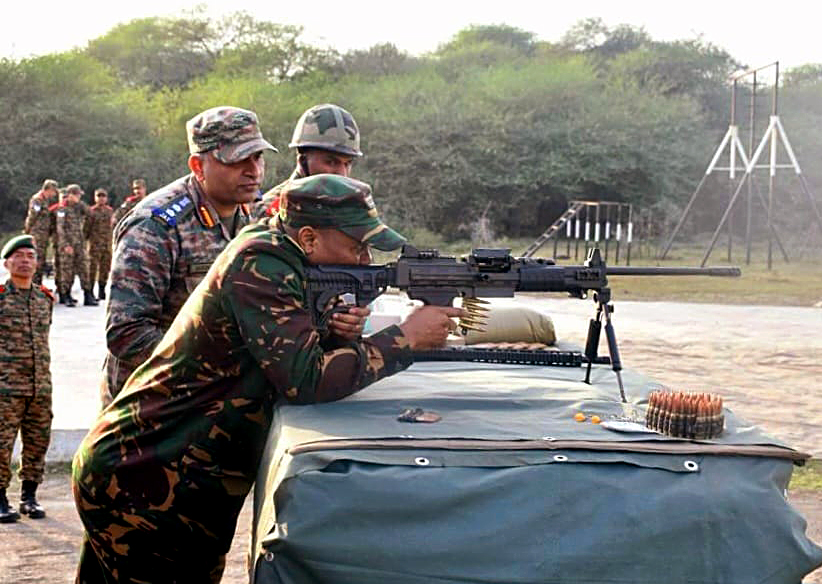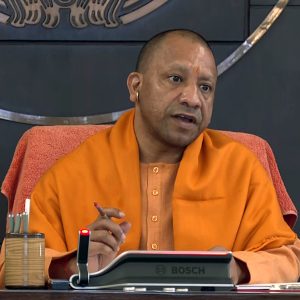Batra, 57, presently serves as the Chief Evaluator & Deputy Director for Evaluation at the GEF’s Independent Evaluation Office (IEO), which is associated with the World Bank…reports Quaid Najmi
Geeta Batra, an Indian economist, has been named as the new Director at the Independent Evaluation Office of the World Bank’s Global Environment Facility (GEF), making her the first-ever woman from a developing country to hold the coveted post.
Batra, 57, is currently the Chief Evaluator & Deputy Director for Evaluation at the GEF’s Independent Evaluation Office (IEO), affiliated to the World Bank.
Her name was unanimously recommended for the coveted position at the 66th GEF Council Meeting held in Washington on February 9 and was announced last week.
“My top priorities will be to deliver sound evaluative evidence on the results and performance of the GEF, provide leadership to ensure that the GEF IEO stays at the forefront of environmental evaluation and strengthen the IEO teams and invest in skills,” Batra told IANS from Virginia, US.
She will also build partnerships with multilateral and bilateral agencies, foundations and networks, and share knowledge of what works, where and why.
Born in New Delhi, Batra studied at the Villa Theresa High School (1984) in Mumbai, then completed her Economics from the Stella Maris College, Chennai (1984-1987), followed by an MBA in Finance from the NMIMS, Vile Parle (1990) in Mumbai.
After her MBA, she was inspired by one of her professors, Harkant Mankad, to go to the US (August 1990) to pursue a PhD in Economics.
Armed with a doctorate, she worked for a couple of years as Senior Manager, Risk, at American Express, before joining the World Bank’s Private Sector Development Department in 1998.
Serving there for seven years till 2005, she implemented competitiveness projects in East Asia and Latin America.
Subsequently, she took over as the Head & Chief Evaluator at the International Finance Corporation, for its advisory services portfolio, before moving to the World Bank’s IEG as Chief Evaluator and Manager for country and corporate thematic evaluations.
In 2015, Batra joined the GEF’s IEO (established in July 2003) – which assesses the progress and impact of GEF interventions – where she manages a team of evaluation professionals, providing oversight on the design, implementation and quality of evaluations.
Since the Rio Earth Summit (1992), the GEF has been one of the largest players in the environmental sector, providing around $24 billion in grants, plus marshalling an additional $138 billion in co-financing over 5,700 projects in 170 countries till 2020.
Through the GEF’s Small Grants Programme (SGP) more than 20,000 grants were given to civil society and community-based organizations totalling over $1 billion.
The GEF is a partnership for international cooperation with 183 countries working together with international institutions, private sector and civil society to address global environmental concerns.
For the past over 23 years, developed and developing countries have provided funds to support activities pertaining to biodiversity, climate change, international waters, land degradation, chemicals and waste in the context of development projects and programs.
Batra has co-authored books and articles, plus managed over 100 evaluations, and is “interested in development issues with a particular focus on promoting the use of feasible and practical approaches in monitoring and evaluation, to help achieve better outcomes”.
She lives in Northern Virginia with her husband Prakash and their daughter Roshini.
When she is not working, Batra loves the outdoors, goes hiking in national parks, reads historical biographies, besides tries out different types of mouth-watering cuisines.
However, she confessed with a smile that her all-time favourite foods include India’s good old pav-bhaji, pani-puri- puri and chhole-bhature…
ALSO READ: India, Canada Discuss ‘Present State’ of Ties in Munich













